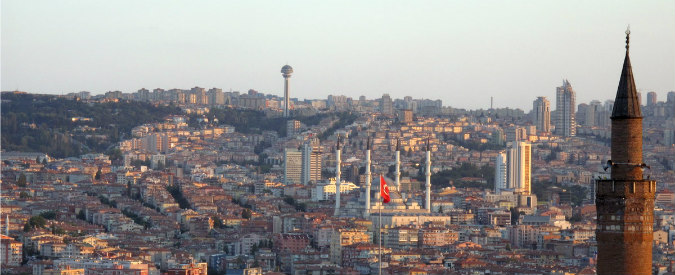Ankara, the Kurds are quite atypical here. Especially Syrian Kurds

The Kurds are quite atypical here, no doubt. Especially Syrian Kurds. The Kurds of Rojava. With their effort at a direct, bottom-up government, they are the anarchic streak of a Middle East which is too often authoritarian, instead, and deeply conservative. But there is a trait they share with all others: basically, they care just about themselves. And now, they’ve been presented the bill.
January 20, Turkey started Operation Olive Branch, its second in Syria after Operation Euphrates Shield. Somehow, the aim is the same: securing a safe zone along the border. But now, the threat for Turkey is not the Islamic State. It is the Ypg, the Popular Protection Units of Rojava, whose 10,000 men, for the United States, should be a patrolling force. And for Turkey, it would mean to get the Kurds right on its doorstep. With a contiguous territory, finally. Contiguous, and armed and backed by the Americans. And Syrian rebels are fighting with Turkey. Because sure, they depend on Turkey. They have no choice. But also because the Kurds, seen by Arabs, and especially by Syrians, are those who betrayed the revolution: they never joined the Free Army, siding tacitly with Assad in exchange for the self-rule of Rojava – the 25 percent of Syria, with its three cantons of Afrin, Kobane and Jazira. Consequently, Rojava has been spared the war for a long time; for a long time, it has been a world of its own. While Aleppo was under barrel bombs, Rojava was discussing of Marx and Frantz Fanon. Later on, with the attack on the Islamic State, the Kurds became our infantry. Our boots on the ground.
They freed Kobane, first, and step by step, one by one, also towns with an Arab majority. That were never returned to rebels, yet, but rather incorporated into the Rojava government system. Until the siege of Aleppo. When the Kurds decided to keep off-limits Castello Road, the main way into the city. Playing a key role in its fall. And in one of the bloodiest battles ever. With the war on Isis the old Ypg, extended to a few Arabs, has been recycled into the Sdf, the Syrian Defense Forces. But it is still the Kurdish army, at bottom: and when it took back Raqqa, it placed a portrait of Abdullah Ocalan in its main square. Like Hezbollah. That planted its flag in Aleppo.
Nearly none of this arrived to Europe. The left was fascinated by Rojava’s popular democracy, and most of all, by its girls on the frontline: and several activists went even fighting. Rojava was a role model. Full stop. We systematically underplayed the ambiguity and inconsistencies of the Kurds. Of the Syrian Kurds, and even more, of the Iraqi Kurds: who have got an increasing autonomy, over the last years, but only to replace the Baghdad government with a government which is equally rotten and ineffective, and equally brutal with dissidents. Northern Iraq is now under the control of two clans, the Barzani and the Talabani. But for us, it’s Kurdistan: and it is synonymous for freedom and development.
If you criticize Kurdistan, you are with Erdogan. You are with Saddam. It’s inconvenient to write it; but the Kurds, in the end, have been like everybody else. Pursuing only their own goals, and from time to time, picking up the best foreign patron around: in the hope of being someday rewarded with independence. Which is the strategy that has turned the Middle East in what it is, actually: a battlefield. And it goes without saying – that’s now exactly the strategy of Syrian rebels, too: by joining the attack on Rojava, they think they’ll get from Turkey weapons and support to revive the war against Assad. They think they are fighting with Turkey: but they are fighting for Turkey. Nothing more. The true revolution, here, will be claiming rights for all, not only for one’s own people. And realizing that means are as significant as ends.

